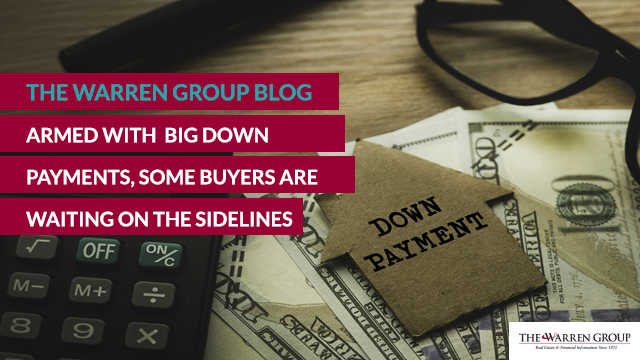That’s the scoop from The Wall Street Journal.
The WSJ recently interviewed a pair of prospective buyers with tens of thousands of dollars saved up, but have decided to wait out the real estate market until either mortgage rates or prices go down.
One couple was hoping to buy a house in South Carolina but has decided to stay in Virginia. The other couple sold their house in Ohio and have moved into a rental as they wait for prices to fall in Cincinnati.
Apparently, there are many more cash-laden buyers just like that on the sidelines and trying to figure out what to do with all that money they have saved up but aren’t using right now, according to financial planners interviewed by the Journal.
The verdict from planners? Well, for starters, buyers should not be gambling in the stock market with that money if they plan to withdraw it in the next year or two to buy a home.
“Don’t gamble with the money, and be ready to act when prices have stabilized and rates come back down,” said Joanne Burke, a financial planner in Vienna, Va., told the paper.
What should prospective homebuyers do while sitting idle?
According to the WSJ, buyers should explore some alternatives to the standard savings accounts, whose low returns are even more measly now amid high inflation.
Some planners are suggesting, U.S. government-backed I Bonds for those planning on waiting longer than a year, or six-to-12-month Treasury bills and money market funds for those with shorter time horizons.
There may be one silver lining, though. When buyers eventually jump back into the market, they may no longer need to put as much money down as they did before.
There are signs that the huge down payments, which had become a fixture of the white-hot housing market, may be starting to come back to earth, real estate data shows.
The average down payment, which has risen to well over $60,000, or double what it had been back in pre-pandemic 2019, has fallen back in recent months, the Journal reports.
What’s behind the drop in down payment sizes?
Well home sales, both across the country and across the state, are now falling by double digits.
Sales of single-family homes in Massachusetts fell 16.2 percent in September, compared to the same month a year ago, according to the latest numbers issued by The Warren Group.
(There is likely a corresponding decline in the number of home loans issued as well, with The Warren Group collecting an extensive range of lending data that can be used in mortgage market analysis.)
Fewer buyers on the hunt for homes, in turn, has led to a decline in bidding wars and less pressure on buyers to try and stand out with bulked-up down payments.
Still, while there is some safety on the sidelines, waiting to buy is not without its risks…
While some buyers are clearly hoping to be back in the market in the next year or so, there is no guarantee either prices or rates will come down during that time period.
In fact, even as home sales have declined in Massachusetts, prices continue to rise, hitting $550,000 in September, for an increase of 7.8 percent over September 2021.
Some buyers, in essence, are trying to time the real estate market. And short of a crystal ball, that’s no easy thing to do.


Recent Comments